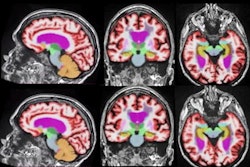Dear AuntMinnie Member,
Salaries for radiology professionals in the U.S. edged higher in 2021, as both radiologists and radiologic technologists (RTs) enjoyed steady wage growth.
That's according to the latest data from SalaryScan, AuntMinnie.com's annual review of compensation and benefits in radiology. We released new data from SalaryScan this week, and our article about the news was our top story for the week.
Radiologists saw an average base salary of $432,627, while radiologic technologists reported an average base salary of $80,209. Both radiologists and RTs who subspecialized enjoyed higher salaries, and wages also varied greatly on a regional basis.
Learn more in our article in our Imaging Leaders Community. For a deep dive into the numbers, visit the SalaryScan data query tool in our Jobs section.
Is AI a threat to RTs?
The wage growth experienced by radiologic technologists last year was great, but what's on the horizon? Do new technologies like artificial intelligence (AI) pose a threat as tasks once performed by RTs are outsourced to machines?
Not so much, according to Dr. Daniel Sodickson, PhD, who spoke on the topic at the recent International Society for Magnetic Resonance in Medicine meeting. Contrary to the fears of some, Sodickson has a bullish view of AI, saying that RTs are the key interface between patients and imaging technologies and are vital to both clinical practice and research.
Contrast shortage grinds on
The shortage of iodinated contrast media for CT and x-ray procedures continues to grind on. Imaging facilities are being forced to ration supplies and postpone some procedures.
This week, we offer several articles on how to deal with the shortage. The RSNA yesterday hosted a webinar that featured several prominent radiologists who shared their strategies for conserving contrast.
Also, the shortage is having an impact on interventional radiology. Researchers from the University of North Carolina offered their advice in an article in our Digital X-Ray Community.
Also in the community, check out a new study on the use of AI for diagnosing osteoporosis on hip x-rays, and another article on creation of a new database of wrist fractures by researchers in Austria that's designed to speed the development of AI algorithms for this application.



















